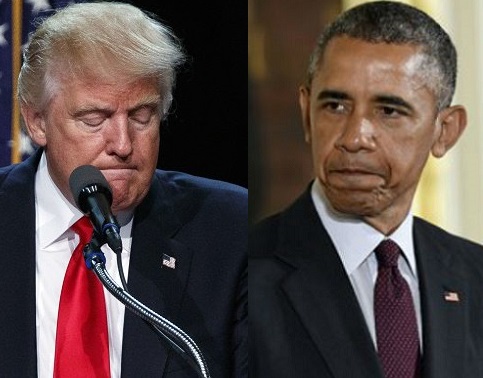US President Barack Obama will make a short but politically charged trip from the White House to Capitol Hill Wednesday, calling allied lawmakers to arms in defense of his signature healthcare reforms.
Obama’s eight-year drive to extend medical coverage to tens of millions of Americans will come under sustained assault when President-elect Donald Trump takes office January 20 with Republican majorities in both house of Congress.
In a preemptive strike, the outgoing president will meet Senate and House Democrats, “principally (to) discuss how to counter the stated Republican objective of repealing the Affordable Care Act,” said White House spokesman Josh Earnest.
Obama’s rare legislative pilgrimage coincides with a dueling visit to the Congress by Vice President-elect Mike Pence.
“We’re focused on repealing and replacing Obamacare,” Pence said Tuesday. “We look forward to legislation that will give us the tools to roll back the avalanche of red tape and regulation that have been stifling American jobs.”
After a crushing election loss, Democrats may have limited options for stalling reforms without significant Republican defections.
They also face criticism that Obama’s reforms have led to rising insurance premiums and a string of technical problems.
Repeal and then what?
But while Republican opposition to Obamacare is clear, their prescription to fix it is not.
House Speaker Paul Ryan has proposed a tax credit system as a possible replacement, but the costs to government and individuals remains vague.
Some Republicans have suggested repealing Obamacare now and replacing it at later, perhaps after the next election.
But the White House is betting that Americans voters will react with fury if Trump moves to strip millions of coverage with no viable alternative.
They are hoping that public outcry could force Trump to confront some of the more ideologically driven reforms proposed by his own party.
The president-elect is seen as highly sensitive about his public standing.
He has been quick to tweet defensively about perceived slights or reminders that despite his electoral college victory in the November elections, his rival Hillary Clinton still won the popular vote by almost three million ballots.
Trump comes to office with 48 percent of Americans polled by Gallup believing he is handling the transition effectively.
That is far less than the 75 percent approval Obama enjoyed at the same point or George W. Bush’s 65 percent.
Republican legislators are eager to take charge after eight years spent fighting against Obama’s policies.
But some are wary that white working class Americans, who delivered them to office, may bear the brunt of any reforms.
Gutting Obamacare could also have knock-on effects for funding healthcare for retirees, a group essential to the Republican Party’s survival.
In these two issues, Democrats see pressure points they hope to exploit in defense of Obama’s plan.
“It’s not surprising to me that there are some Republicans who are now a little queasy about the prospect of the impact that repealing Obamacare would have on their own supporters,” said Earnest.
“We know there are people all across the country who benefit from this law, who are protected by this law, whose lives have been saved by this law.”
Obama is believed to have put this point directly to Trump when they talked soon after the election.
Privately many Democrats admit their best hope now could be offering Trump some form of political victory, so long as the plan survives more or less intact.
